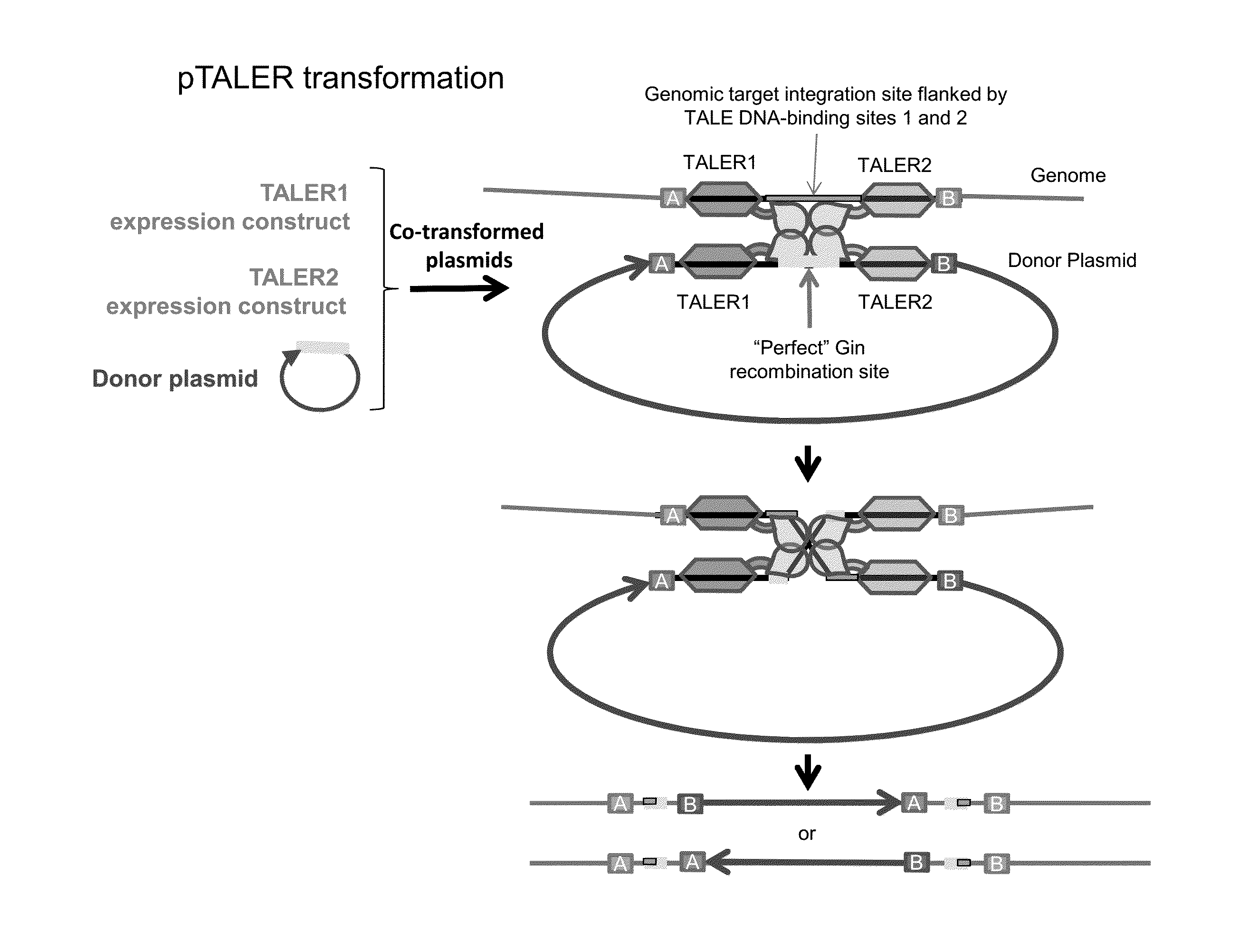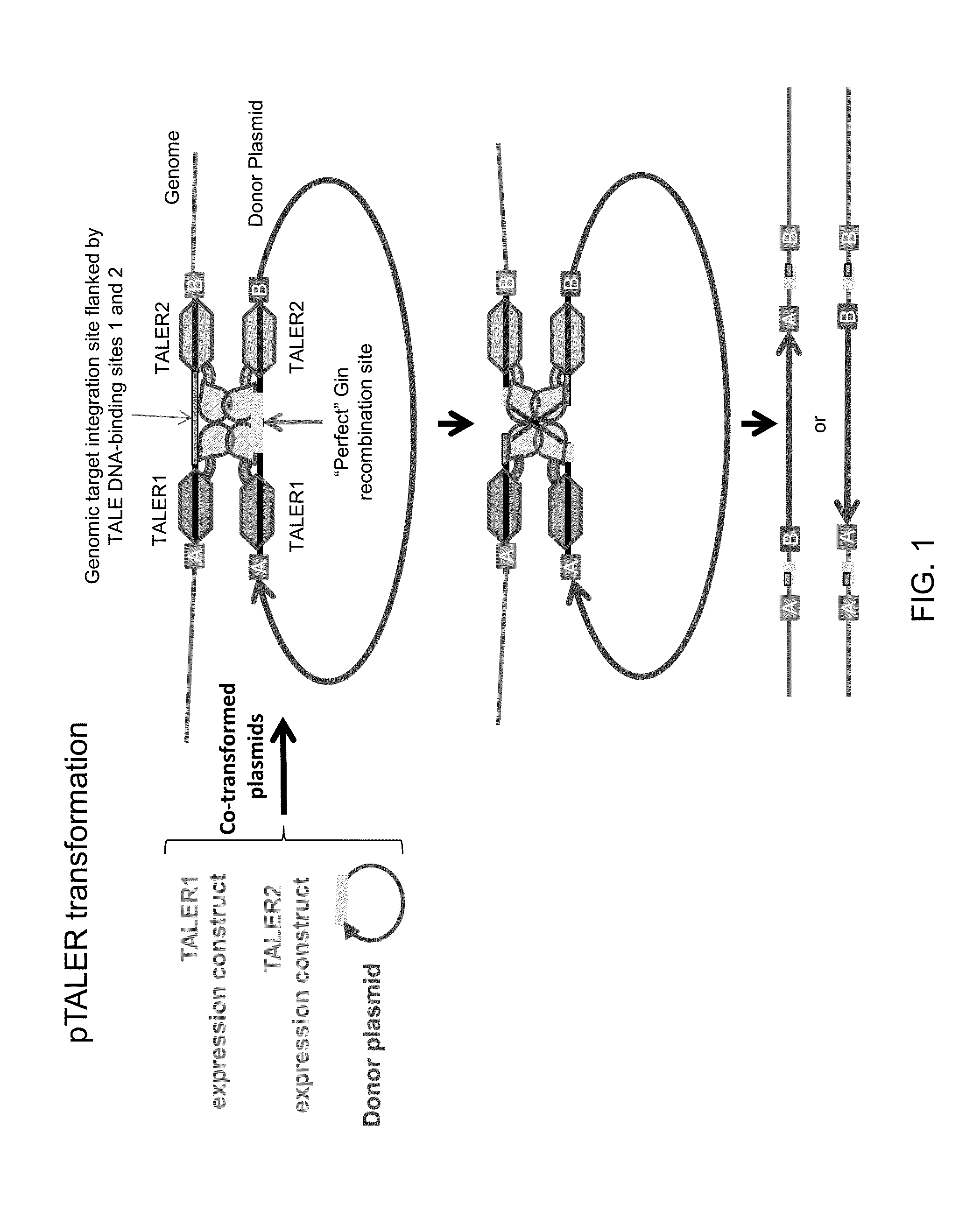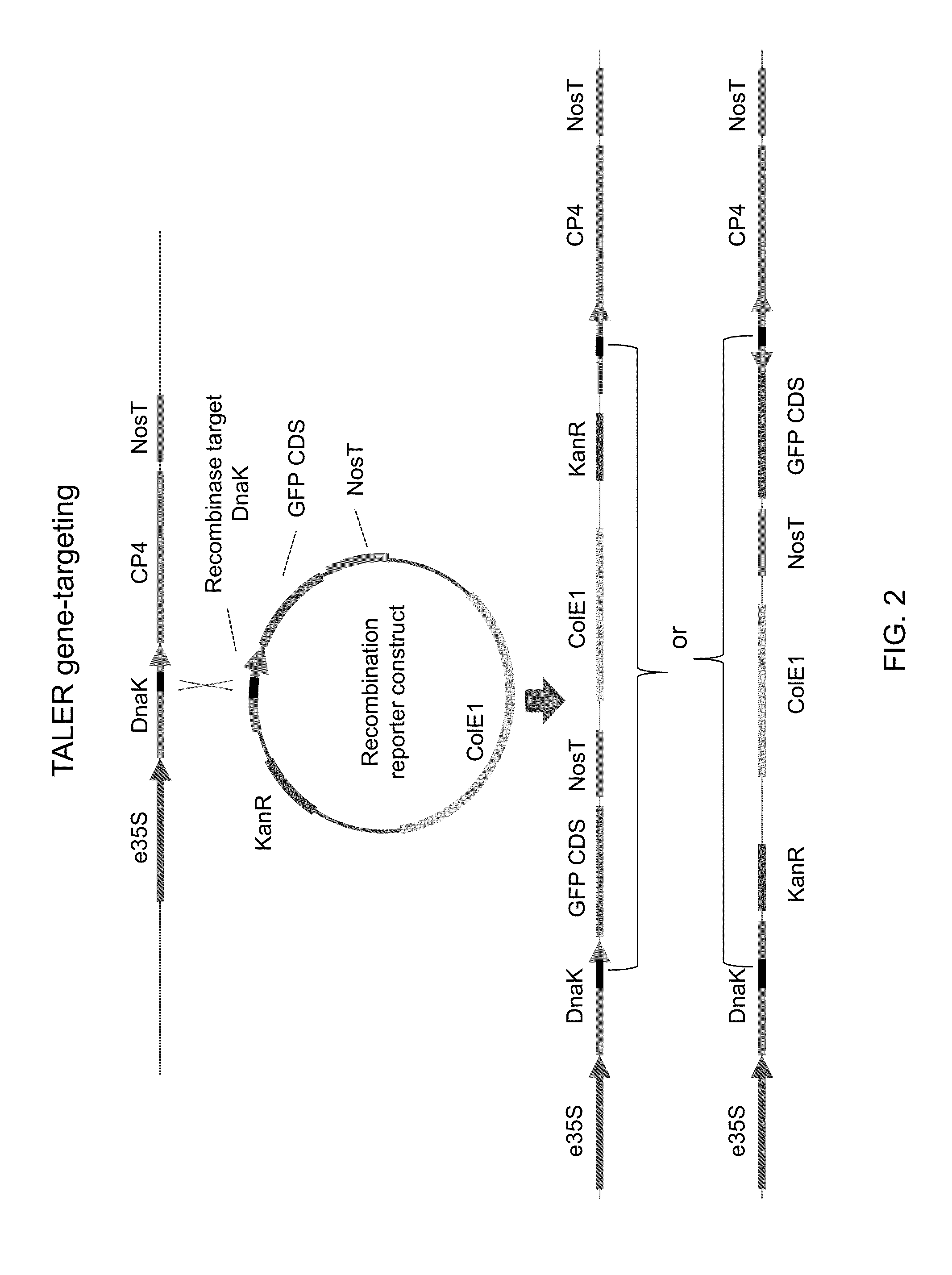Methods for targeted transgene-integration using custom site-specific DNA recombinases
a dna recombinase and site-specific technology, applied in the field of biotechnology, can solve the problems of limited dna targeting using zinc fingers and unmodified recombination
- Summary
- Abstract
- Description
- Claims
- Application Information
AI Technical Summary
Benefits of technology
Problems solved by technology
Method used
Image
Examples
example 1
TALER-Mediated Targeted Integration of Exogenous DNA into a Specified Host Genomic Locus
[0133]DNA constructs have been designed to integrate, by TALER-mediated recombination, a green fluorescent protein (GFP) coding sequence (CDS) downstream from a strong constitutive promoter (e35S) driving expression of a CP4-EPSPS CDS in a corn transgenic line. Correctly targeted events would result in e35S-driven GFP expression and detectable fluorescence (FIG. 2). Because TALER-mediated integration will not be directional, correctly targeted GFP integration events with improper CDS orientation, and thus no GFP expression, are expected. Transformants can be screened, by PCR or other techniques, to identify random integration events resulting in GFP expression.
[0134]Four target insertion sites (TR1, TR2, TR3, and TR6) have been chosen in the transgenic corn genome; three sites (TR1, TR2, and TR3) inside the integrated CP4-EPSPS cassette, and one site (TR6) at a separate locus outside of the integ...
example 2
TALER-Mediated Targeted Integration of Exogenous DNA into a Specified Host Genomic Locus Using Recombinase-Mediated or Virus-Mediated Circularization
[0138]Recombination between a single host genomic site and a corresponding site in a circular donor DNA molecule will result in integration of the entire donor DNA molecule into the host genome at the site of recombination. By contrast, recombination between a single host genomic site and a corresponding site in a linear donor DNA molecule will result in a chromosomal break. As many transformation methods employ linear DNA molecules, a method to avoid host chromosomal breakage from TALER-mediated integration of a linear donor DNA molecule is described.
[0139]An exogenous DNA sequence of interest to be integrated into a host genome (FIG. 3, “cargo”), and a suitable TALER target sequence site for TALER-mediated recombination, are flanked by recombination sites (e.g., Lox sites). The corresponding recombinase (e.g., Cre) for these flanking ...
example 3
pTALER-Mediated Targeted Integration of Exogenous DNA into a Specified Host Genomic Locus Using Modified Recombinase Mediated Cassette Exchange (mRMCE)
[0145]Recombination-mediated cassette exchange (RMCE) has been previously described as a method for inserting traits into desired locations. In short, RMCE is the use of recombinases to cause recombination at two pairs of recombination sites such that a piece of DNA flanked by these sites in a donor molecule replaces a segment in the target molecule that is flanked by a corresponding pair of recombination sites (FIG. 4). There should be one recombination site from each pair on both the donor and target molecule.
[0146]RMCE requires a pair of recombination sites in the target molecule (e.g., a chromosome) flanking the desired site of integration. This is a significant limitation because the likelihood of two recombination sites for known recombinases pre-existing at a desired genomic location is extremely low. As a result, for successfu...
PUM
| Property | Measurement | Unit |
|---|---|---|
| nucleic acid sequence | aaaaa | aaaaa |
| nucleic acid | aaaaa | aaaaa |
| antibiotic resistance | aaaaa | aaaaa |
Abstract
Description
Claims
Application Information
 Login to View More
Login to View More - R&D
- Intellectual Property
- Life Sciences
- Materials
- Tech Scout
- Unparalleled Data Quality
- Higher Quality Content
- 60% Fewer Hallucinations
Browse by: Latest US Patents, China's latest patents, Technical Efficacy Thesaurus, Application Domain, Technology Topic, Popular Technical Reports.
© 2025 PatSnap. All rights reserved.Legal|Privacy policy|Modern Slavery Act Transparency Statement|Sitemap|About US| Contact US: help@patsnap.com



